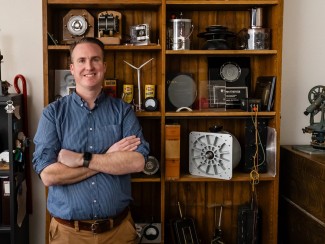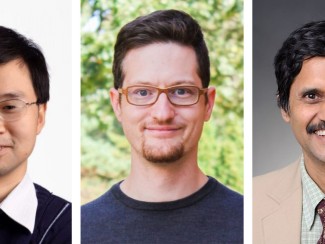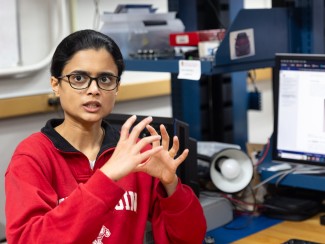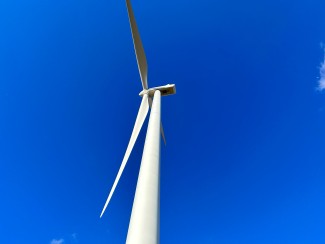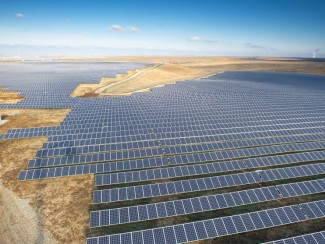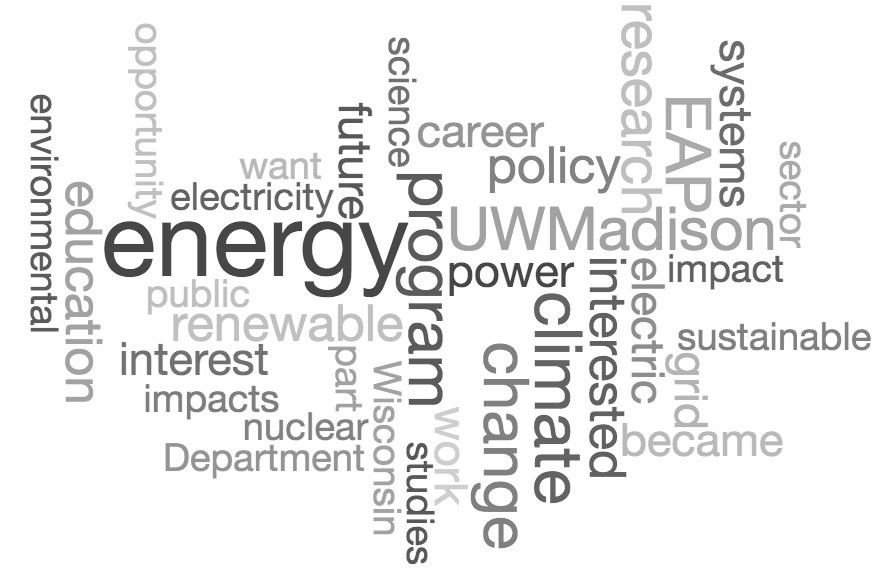
Last year, the Wisconsin Energy Institute asked five students about their motivations for studying energy. This year, we're featuring six impressive students at UW–Madison who are faces of the energy future. We asked each student:
How did you become interested in energy? In what ways have you furthered your education or research into energy at UW–Madison? How do you see your research/education on energy impacting your future?
Adria Brooks
PhD in Electrical Engineering, Energy Analysis and Policy Certificate, expected 2020 • College of Engineering
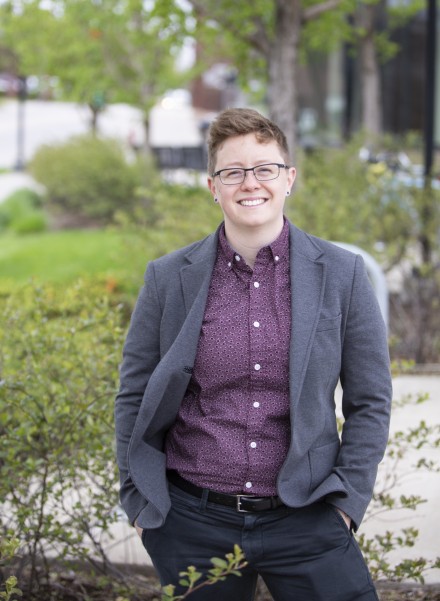
“As an undergrad at University of Arizona, I studied space sciences, but took a year off to work as a sawyer (lumberjack) and travel. During that year, I became more interested in environmentalism and decided to switch tracks to renewable energy. After graduation, I landed a research position in a solar PV test yard where I did research catered to the public and industry. Following that experience, I decided to return to school and focus on grid studies, an area that needs development if we are going to have more solar. Now, as a PhD student, I study how the increased power variability of renewable energy sources can be better incorporated into our electricity markets. UW–Madison’s Department of Electrical and Computer Engineering has a strong power systems group which taught me the physical principles of electric power transfer, while the EAP curriculum gave me a broader understanding of markets, the politics of renewables, and the regulatory structures which govern electricity. After graduation I hope to try my hand at federal energy policy, and perhaps after that, work in the national laboratory system on power grid research.”
Joe Brunner
BE Civil Engineering, Certificate in Engineering for Energy Sustainability, 2019 • College of Engineering
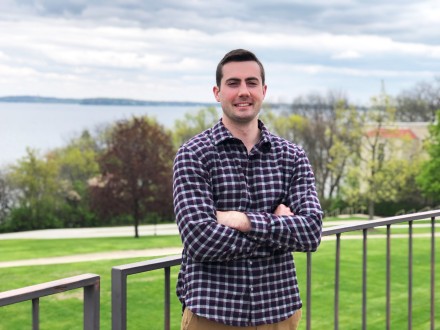
"I became interested in energy after studying abroad in Germany for two weeks learning about renewable energy and sustainable building design. Seeing a country so invested in renewable energy made me want to bring that ideology back to the U.S. and make a positive impact to help reduce our carbon footprint. At UW–Madison, I have been involved in WiscWind, a student organization that competes in the U.S. Department of Energy’s Collegiate Wind Competition. My specific role is in the siting and project development challenge, which requires us to design a hypothetical wind farm in Wisconsin. It has been an extremely valuable experience and has motivated me to continue this type of work in the future. After graduation I will work for a renewable energy development company in Chicago, doing my part to help combat the impacts of climate change on our world."
Mikhaila Calice
MPA, Energy Analysis and Policy Certificate, 2019 • La Follette School of Public Affairs
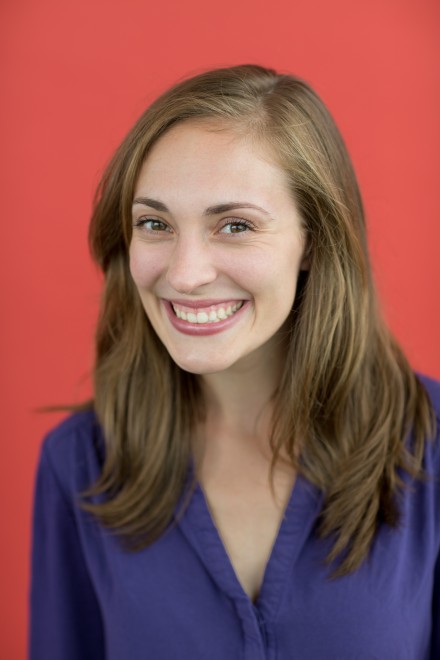
“I studied political science and international studies as an undergrad. After college, I became LEED certified and created a sustainable buildings program at a heating and cooling company in Virginia. That was my first dive into energy efficiency and how useful it can be, both for climate change mitigation and saving businesses money. I also conducted a policy review of an EPA refrigerant phase-out. That project made me want to study energy and environmental policy. The EAP program was a major reason I chose to attend UW–Madison while pursuing a master's of public affairs degree. Through the program I got an internship with a local nonprofit, Slipstream, that performs energy efficiency research and analysis. That internship sparked my interest in the relationship between regulators, the state, and the utility, and what that means for the grid and climate change. Recently I was invited to the Fastest Path to Zero conference in Ann Arbor where I spoke on behalf of future energy leaders and the youth that will be impacted by climate change. It was a cool opportunity because it gave me the chance to meet leaders in the energy sector in research, advocacy, government, and industry. The EAP program has totally changed my trajectory—in the fall I’ll be starting a PhD in science communication through the Department of Life Sciences Communication at UW–Madison and I’m really excited to focus on the energy transition, how we talk about it, and what that means for our climate goals.”
Katie Mummah
PhD in Nuclear Engineering and Engineering Physics, expected 2022 • College of Engineering
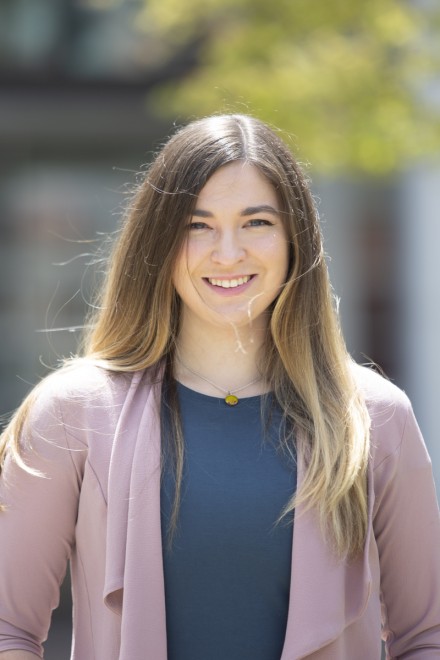
"I've always been interested in complex systems—fields that combine technical and sociopolitical challenges—so nuclear engineering was a perfect fit when it came time to choose a major. Beyond that, I'm pursuing a career in energy because it’s where my work can have a big impact, because energy is so central to our daily lives. UW–Madison has given me many opportunities to further both my research and education in energy through the Institute for Nuclear Energy Systems (INES) and EAP graduate certificate program. As an engineer, I really value the opportunity to connect with students from other disciplines and learn about energy from other departments, such as economics and environmental studies. The wealth of energy expertise here in Madison allows me to combine my technical skills with a passion for communicating science in a really exciting way. I plan to build my career in energy, whether that's working as a researcher at a national lab, a think tank, or a startup. No matter where I'm headed, the energy education I received at UW–Madison will be essential to my career."
Sophia Rogers
MPA/JD, Energy Analysis and Policy Certificate, 2019 • La Follette School of Public Affairs and Law School
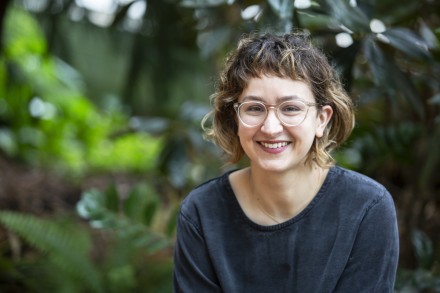
"I’m interested in energy because I’m concerned about climate change. How we produce energy and manage our insatiable appetite for consumption will determine the future of our species. I’m a soon-to-be attorney hoping to practice in environmental protection, so I need to be educated and informed on science regarding energy and climate change. Participating in the Energy Analysis and Policy (EAP) certificate program, I learned about energy production, electricity transmission, and emerging technologies. I came into UW–Madison with an interest in energy but no training. I now have scientific literacy and a breadth of topical knowledge in my field. I am currently pursuing a career in litigation relevant to climate change (such as energy regulation and climate change adaptation) and expect to draw on my energy education long into the future."
Megan Zielke
MS Environment and Resources, 2019 • Nelson Institute for Environmental Studies
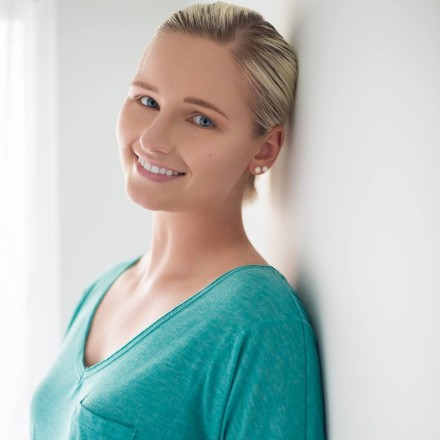
“My interest in energy stems from my passion for climate change. At UW–Stevens Point, I earned a minor in sustainable energy and became very interested in renewables and ‘clean’ energy. I wanted to continue learning about the energy sector, so I began the EAP program at UW–Madison. Through EAP, I was able to learn about a broad range of energy topics, including policy, energy systems, governance, economics, and environmental impacts. This education has allowed me to delve into renewable energy topics and has expanded my interest in electric vehicles. For my master’s thesis, I analyzed electric vehicle impacts on the grid and their demographic drivers in regards to technology penetration in the state of Wisconsin. After completing EAP’s capstone course, I was offered a job at the Public Service Commission of Wisconsin (PSC) where I evaluated the impact of electric vehicles on the state’s bulk transmission system. Working for the PSC and networking within the EAP program helped to introduce me to many individuals in the energy sector and has expanded my network.”

